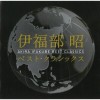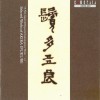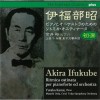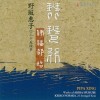Biography
Akira Ifukube (伊福部 昭 Ifukube Akira?, 31 May 1914 – 8 February 2006) was a Japanese composer of classical music and film scores, perhaps best known for his work on the soundtracks of the Godzilla movies by Toho.
Akira Ifukube was born on May 31, 1914 in Kushiro on the Japanese island of Hokkaidō, the third son of a Shinto priest. Much of his childhood was spent in areas with a mixed Japanese and Ainu population, and his father, unusually for the time, socialised with Ainu. Ifukube was strongly influenced by the traditional music of both peoples, and studied the violin and the shamisen. His first encounter with classical music occurred when attending secondary school in Hokkaidō's capital, Sapporo. Legend has it that Ifukube decided to become a composer at the age of 14 after hearing a radio performance of Igor Stravinsky's ballet, The Rite of Spring. He also cited the music of Manuel de Falla as a major influence.
Ifukube went on to study forestry at Hokkaido University and composing in his spare time, which prefigured a line of self-taught Japanese composers such as Tōru Takemitsu and Takashi Yoshimatsu. His first piece was the piano solo, Piano Suite (later the title was changed to Japan Suite, arranged for orchestra). This piece was dedicated to the pianist George Copeland who was then living in Spain. Atsushi Miura, musicologist and Ifukube's friend in university, sent a fan letter to Copeland. Copeland replied, "It is wonderful that you listen my disc in spite of you living in Japan, the opposite side of the earth. I imagine you may compose music. Send me some piano pieces." Then Miura, who was not a composer, presented Ifukube and this piece to Copeland. Copeland promised to interpret it, but the correspondence was unfortunately stopped because of the Spanish Civil War. Ifukube's big break came in 1935, when his first orchestral piece, Japanese Rhapsody, won the first prize in an international contest for young composers promoted by Alexander Tcherepnin. The judges of that contest—Albert Roussel, Jacques Ibert, Arthur Honegger, Alexandre Tansman, Tibor Harsányi, Pierre-Octave Ferroud, and Henri Gil-Marchex—were unanimous in their selection of Ifukube as the winner.[1] The next year, Ifukube studied modern Western composition while Tcherepnin was visiting Japan, and in 1938 his Piano Suite obtained an honourable mention at the I.C.S.M. festival in Venice. In the late 1930s his music, especially Japanese Rhapsody, was performed in Europe on a number of occasions.
On completing University, he worked as a forestry officer and lumber processor, and towards the end of the Second World War was appointed by the Japanese Imperial Army to study the elasticity and vibratory strength of wood. He suffered radiation exposure after carrying out x-rays without protection, a consequence of the wartime lead shortage. Thus, he had to abandon forestry work and became a professional composer and teacher. Ifukube spent some time in hospital due to the radiation exposure, and was startled one day to hear one of his own marches being played over the radio when General Douglas MacArthur arrived to formalize the Japanese surrender.
From 1946 to 1953, he taught at the Nihon University College of Art, during which period he composed his first film score for The End of the Silver Mountains, released in 1947. Over the next fifty years, he would compose more than 250 film scores, the high point of which was his 1954 music for Ishirō Honda's Toho movie, Godzilla. Ifukube also created Godzilla's trademark roar – produced by rubbing a resin-covered leather glove along the loosened strings of a double bass – and its footsteps, created by striking an amplifier box.
Despite his financial success as a film composer, Ifukube's first love had always been his general classical work as a composer. In fact his compositions for the two genres cross-fertilized each other. For example, he was to recycle his 1953 music for the ballet Shaka, about how the young Siddhartha Gautama eventually became the Buddha, for Kenji Misumi's 1961 film Buddha. Then in 1988 he reworked the film music to create his three-movement symphonic ode Gotama the Buddha. Meanwhile he had returned to teaching at the Tokyo College of Music, becoming president of the college the following year, and in 1987 retired to become head of the College's ethnomusicology department. He trained younger generation composers such as Toshiro Mayuzumi, Yasushi Akutagawa and Kaoru Wada, Yssimal Motoji and Imai Satoshi. He also published Orchestration, a 1,000-page book on theory.
He died in Tokyo at Meguro-ku Hospital of multiple organ dysfunction on February 8, 2006 at the age of 91.










